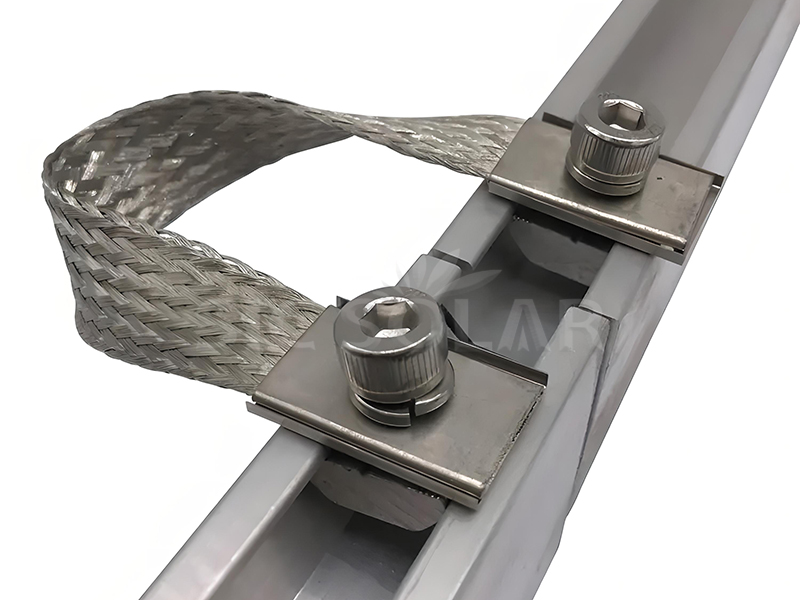Grounding is an essential aspect of any electrical system, and solar panels are no exception. Grounding refers to creating a physical connection between the electrical system and the earth, providing a safety path for excess electricity or faults. But does every solar panel need to be grounded, and why is this so important?
Why Grounding Solar Panels is Crucial
- Safety The primary reason for grounding solar panels is to protect people and property from electrical hazards. Without proper grounding, a malfunction or surge in the system could lead to electric shock or fire. By grounding the solar panels, any excess electrical current, such as from a lightning strike or system fault, is directed safely into the ground instead of causing damage to the solar components or posing a safety risk to those nearby.
- Protection from Surges and Lightning Strikes Solar panels, especially in large installations, are often installed in open spaces where they can be exposed to lightning strikes. Grounding helps divert the electrical energy from a lightning strike away from the sensitive components of the system, preventing damage to the panels, inverters, and other electrical components.
- Complying with Electrical Codes Most countries and regions require solar panels and their systems to be grounded to comply with local electrical codes and regulations. These standards are in place to ensure that solar installations are safe and effective. Grounding helps prevent potential faults from affecting the system’s performance or posing risks to nearby equipment or people.
Types of Grounding in Solar Systems
There are two main types of grounding in solar installations:
- System Grounding System grounding connects the negative terminal of the solar panel array to the earth. This is typically required for traditional DC systems, where the inverter or charge controller needs a grounded connection to function safely.
- Equipment Grounding Equipment grounding involves connecting the metal parts of the solar installation, including the mounting system and solar panel frames, to the earth. This ensures that if there is an electrical fault or short circuit, the current has a direct path to the ground rather than energizing the metal components, which could lead to dangerous situations.
Grounding and SIC Solar Mounting Systems
Proper grounding is not just about the solar panels themselves but also includes the mounting systems they are attached to. SIC Solar, a company known for its high-quality photovoltaic mounting systems, ensures that their designs support safe and reliable grounding. Their mounting systems, made from durable and conductive materials like aluminium, offer secure grounding points, providing a safe path for excess electricity to flow into the earth.
SIC Solar mounting solutions are designed with safety in mind, allowing for easy integration of grounding components during the installation process. Whether the system is roof-mounted or ground-mounted, SIC Solar’s systems meet the necessary safety standards to ensure the entire installation is grounded correctly.
Grounding Options: Grounding Wires vs. Integrated Grounding
There are two main methods for grounding solar panels:
- Grounding Wires Traditional solar panel installations use grounding wires, which are attached to the frame of each solar panel and connected to a grounding rod buried in the earth. These wires ensure that any stray electrical current is safely redirected to the ground.
- Integrated Grounding Systems Some modern solar mounting systems, including those offered by SIC Solar, come with integrated grounding features. These systems simplify the installation process by reducing the need for separate grounding wires. With integrated grounding, the frame and mounting system are designed to connect all components securely, creating a continuous path to ground without additional wiring.

Yes, solar panels need to be grounded to ensure safety, protect equipment from electrical surges, and comply with electrical codes. Whether it’s through traditional grounding wires or integrated grounding systems, grounding is a critical step in any solar installation.
With companies like SIC Solar providing advanced photovoltaic mounting systems that support reliable grounding solutions, homeowners and businesses can enjoy peace of mind knowing their solar system is safe and compliant with industry standards.